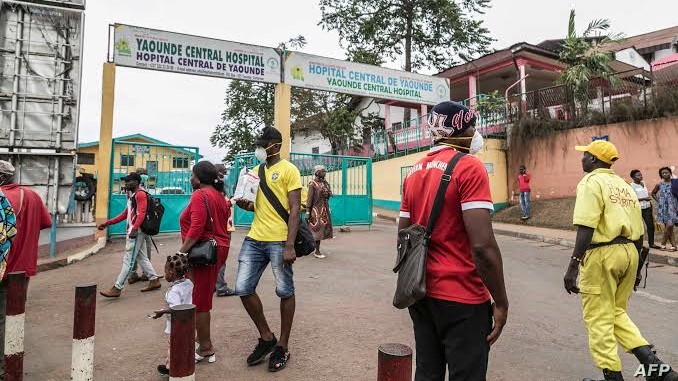92% Of Cameroon’s Businesses Negatively Impacted By COVID-19 – Report

The COVID-19 pandemic has had a huge negative effect on businesses in Cameroon, according to a report.
The report by the Inter-Patronal Grouping of Cameroon, popularly known by its French acronym, GICAM, stated that 92 per cent of 100 local companies sampled between April 13 and April 21, 2020, claimed the coronavirus pandemic has had a negative effect on their business operations.
Fifty-two per cent of the companies sampled reported “very negative” effects while 40 per cent reported “negative” impact on their operations.
“SMEs (Small and Medium-sized Enterprises) and service companies are the most affected. The proportion of SMEs reporting a very negative impact is higher (61 per cent) and large companies (27 per cent).
“Similarly, 58 per cent of service companies reported being very negatively impacted by the COVID-19 pandemic compared to 38 per cent of industrial companies,” according to the report.
Of the 100 companies sampled, 69 per cent of companies involved in industrial activities said their productions were directly affected while 26 per cent of service companies reported direct negative effects.
As concerns large companies, 50 per cent declared that their productions were directly affected as compared to 36 per cent of small and medium-sized enterprises (SME).
Meanwhile, Mr Jacquis Kemleu Tchabgou, the Secretary General of l’Association des raffineurs des oléagineux du Cameroun (ASROC) – Association of Refiners of Oleaginous of Cameroon – (industries that refine vegetable oils) said that companies associated with the organisation realised a drop of 40 per cent in income and activities March.
Speaking in an interview with the public television channel CRTV (Cameroon Radio Television) on Sunday, Tchabgou said government must do something to help the sector otherwise the refiners might suffer irrepairable damage to their businesses.
He put the blame for the negative situation on the lockdown measures imposed by government due to the coronavirus pandemic which has greatly impacted on the activities of the sector’s principal customers who were hoteliers and restaurant owners.
The ASCROC scribe said government’s intervention to save the situation would not only preserve jobs but enhance government’s revenue which would otherwise be adversely affected if the refining industries collapsed and failed to continue meeting up their fiscal obligations to the state.
While other countries have announced palliative measures such as tax exemption to cushion the negative effects of the pandemic on businesses, the Cameroonian government continues to drag its feet in coming to the assistance of its business community.
Senior officials in the Ministry of Finance and the Ministry of the Economy, Planning and Regional Development, who spoke to HumAngle on condition of anonymity, said government was still reflecting on the appropriate tax incentives to grant business operators. So far, several business organisations have since presented proposals to government on how it can come to the assistance of business people.
Government however seems to be in a very tight corner because it is faced with two debilitating situations that are very negatively affecting its budget.
As an oil-producing country that depends on petroleum income for about 50 per cent of its income, the current squeeze that has forced oil prices to drop by more than 50 per cent is surely going to hit hard on budgetary allocations. To crown it all, the devastating effects of the coronavirus pandemic on national economies worldwide would further sink the economy to unprecedented levels.
On the COVID-19, Cameroon has as at April 28 morning registered 1,705 cases, with 58 deaths, while 805 patients have been successfully treated and discharged from hospital, according to the Ministry of Public Health.
Support Our Journalism
There are millions of ordinary people affected by conflict in Africa whose stories are missing in the mainstream media. HumAngle is determined to tell those challenging and under-reported stories, hoping that the people impacted by these conflicts will find the safety and security they deserve.
To ensure that we continue to provide public service coverage, we have a small favour to ask you. We want you to be part of our journalistic endeavour by contributing a token to us.
Your donation will further promote a robust, free, and independent media.
Donate HereStay Closer To The Stories That Matter




